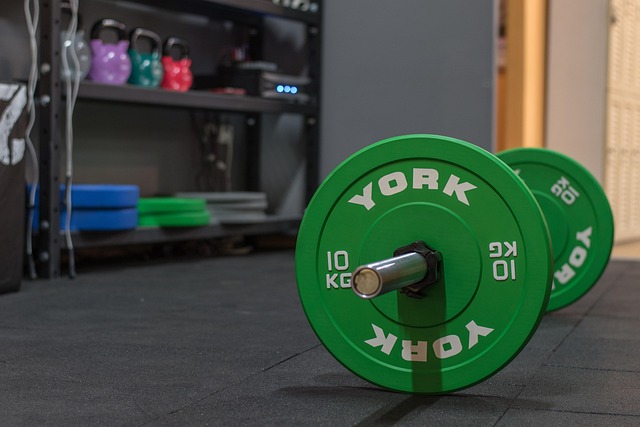The pursuit of muscle growth and strength is a common goal among fitness enthusiasts, athletes, and bodybuilders. While proper nutrition, consistent training, and adequate recovery form the foundation of muscle building, supplements are often marketed as the “secret weapon” to accelerate progress. But do these products live up to the hype? In this article, we’ll explore the most popular muscle-building supplements, separating science-backed options from ineffective or overhyped ones.
Why Supplements Are Popular
In an era where convenience and quick results are highly valued, supplements have become a multi-billion-dollar industry. They promise to enhance performance, boost muscle growth, and speed up recovery—all with minimal effort. However, it’s crucial to approach supplements with a critical eye. Not all products deliver on their claims, and some may even pose risks if misused.
Before diving into specific supplements, remember that no pill or powder can replace a solid diet and workout regimen. Supplements should complement—not substitute—your efforts in the gym and kitchen.
What Works: Science-Backed Supplements
Here are the supplements that have been rigorously studied and shown to support muscle building when used correctly:
1. Protein Powder
- How It Works: Protein is essential for muscle repair and growth. Whey protein, derived from milk, is particularly effective due to its high biological value (how efficiently the body uses it) and rapid absorption rate.
- Benefits: Convenient, easy to digest, and ideal for post-workout recovery. Plant-based options like pea or rice protein are also viable for vegans or those with dairy allergies.
- Dosage: Aim for 20–30 grams of protein within 30 minutes after exercise or as part of your daily intake.
2. Creatine Monohydrate
- How It Works: Creatine helps regenerate ATP (adenosine triphosphate), the primary energy source for short bursts of intense activity. This improves strength, power output, and muscle endurance.
- Benefits: One of the most researched supplements, creatine has consistently been shown to increase lean muscle mass, enhance performance, and aid recovery.
- Dosage: Start with a loading phase of 20 grams per day (split into 4 doses) for 5–7 days, followed by a maintenance dose of 3–5 grams daily.
3. Branched-Chain Amino Acids (BCAAs)
- How It Works: BCAAs—leucine, isoleucine, and valine—are essential amino acids that play a role in muscle protein synthesis. Leucine, in particular, triggers mTOR pathways that stimulate muscle growth.
- Benefits: May reduce muscle soreness and fatigue during workouts, especially if consumed before or during exercise. However, BCAAs are less effective if you’re already consuming enough protein through food or other supplements like whey.
- Dosage: 5–10 grams during or after workouts.
4. Beta-Alanine
- How It Works: Beta-alanine increases levels of carnosine in muscles, which buffers acid buildup during high-intensity exercise. This delays fatigue and allows for longer, more intense workouts.
- Benefits: Improves endurance, particularly in activities lasting 1–4 minutes (e.g., sprinting, weightlifting circuits).
- Dosage: 2–5 grams daily, taken in divided doses to avoid tingling sensations (paresthesia).
5. Caffeine
- How It Works: Caffeine stimulates the central nervous system, increasing alertness, focus, and energy. It also enhances fat oxidation and reduces perceived exertion during workouts.
- Benefits: Boosts strength, endurance, and motivation, making it a staple for pre-workout formulas.
- Dosage: 3–6 mg per kilogram of body weight, consumed 30–60 minutes before exercise.
6. Nitric Oxide Boosters (e.g., L-Citrulline)
- How It Works: Nitric oxide dilates blood vessels, improving blood flow and nutrient delivery to working muscles. L-citrulline, a precursor to nitric oxide, is more effective than arginine for this purpose.
- Benefits: Enhances pump, endurance, and recovery. May also lower blood pressure and improve cardiovascular health.
- Dosage: 6–8 grams of L-citrulline malate before workouts.
What Doesn’t Work: Overhyped Supplements
Not every supplement marketed for muscle building delivers tangible results. Here are some examples of products with limited evidence or exaggerated claims:
1. Testosterone Boosters
- Claim: These supplements allegedly increase natural testosterone production, leading to greater muscle gains.
- Reality: Most testosterone boosters contain herbs like fenugreek or D-aspartic acid, which show minimal effects on hormone levels in healthy individuals. Significant improvements typically require prescription medications or therapies.
2. ZMA (Zinc Magnesium Aspartate)
- Claim: ZMA supposedly enhances sleep quality, recovery, and testosterone levels.
- Reality: Research shows mixed results, with no significant impact on muscle growth or performance unless you’re deficient in zinc or magnesium.
3. Glutamine
- Claim: Glutamine is an amino acid said to promote muscle recovery and growth.
- Reality: While glutamine plays a role in immune function and gut health, studies show negligible benefits for muscle building in healthy adults who consume adequate protein.
4. Fat Burners
- Claim: Fat burners claim to simultaneously build muscle and shed fat.
- Reality: Most fat burners rely on stimulants like caffeine or green tea extract, which may slightly increase calorie burn but won’t directly contribute to muscle growth. Their effectiveness varies widely, and side effects like jitteriness and insomnia are common.
5. Mass Gainers
- Claim: High-calorie shakes designed to help “hardgainers” bulk up quickly.
- Reality: While they can be useful for underweight individuals struggling to meet caloric needs, many mass gainers are loaded with sugar and low-quality ingredients. Whole foods are usually a better option.
Key Considerations When Using Supplements
- Prioritize Whole Foods First
- Supplements should never replace real food. Focus on nutrient-dense meals rich in lean proteins, complex carbs, and healthy fats before considering additional products.
- Choose Quality Brands
- Look for third-party testing certifications (e.g., NSF Certified for Sport, Informed-Sport) to ensure purity and accuracy of ingredient labels.
- Tailor Supplements to Your Goals
- For example, creatine and protein powders are excellent for muscle building, while beta-alanine and caffeine target performance enhancement.
- Avoid Overconsumption
- More isn’t always better. Stick to recommended dosages to prevent adverse effects like kidney strain, dehydration, or gastrointestinal distress.
- Consult a Professional
- If you’re unsure about whether a supplement is right for you, consult a registered dietitian, doctor, or certified trainer.
